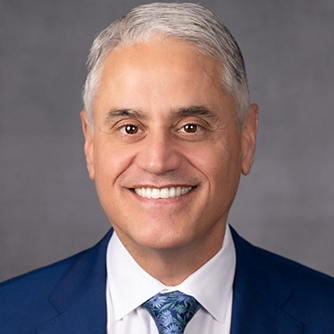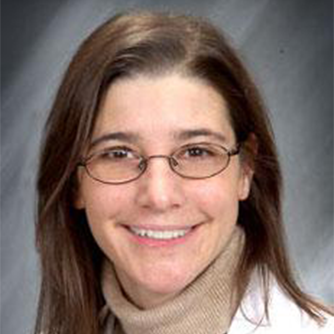Vascular & Endovascular Fellowship
This program will provide comprehensive training, not only in the latest advanced interventional techniques, but, as importantly, in the non-invasive vascular laboratory, vascular clinic, and vascular consult services.
Vascular & Endovascular Fellowship
This program will provide comprehensive training, not only in the latest advanced interventional techniques, but, as importantly, in the non-invasive vascular laboratory, vascular clinic, and vascular consult services.
Overview
Vascular diseases are encountered daily by cardiovascular physicians in practice. Atherosclerosis and thrombosis are systemic disorders that account for substantial cardiovascular morbidity and mortality. Cardiovascular physicians, by virtue of their broad knowledge base as internists, and advanced imaging expertise in echocardiography, ultrasound and angiography, are uniquely qualified to diagnose, treat, and follow patients longitudinally with these disorders. Moreover, the last decade has witnessed an explosion in technological advances in imaging techniques and catheter-based interventions.
It is precisely because of the scope and breadth of these advances, a three-year cardiology fellowship in no longer adequate training to become expert in all the subspecialties of cardiovascular medicine. Additional training years for the subspecialties of electrophysiology, interventional cardiology, imaging and heart failure/transplant have already been established. Heretofore, training in vascular and endovascular medicine during a cardiovascular fellowship has been inadequate to accommodate the clinical demands of the contemporary paradigm. Indeed, the American College of Cardiology Revised Recommendations for Training in Adult Cardiovascular Medicine Core Cardiology Training II (COCATS 2) document has mandated the requirement for an additional year of dedicated training for training for noncoronary catheter-based vascular interventions. (Available at http://www.acc.org/clinical/training/cocats2.pdf)
Surprisingly, there are literally only a handful of such dedicated training programs currently available. Thus, there is a dire need for these fellowships. This program will provide comprehensive training, not only in the latest advanced interventional techniques, but, as importantly, in the non-invasive vascular laboratory, vascular clinic, and vascular consult services. Our philosophy is to train true vascular specialists, not merely to train cardiologists in peripheral procedures. There will be two Vascular fellows/year, and the Interventional Cardiology fellows will also rotate through the labs and clinics.
Leadership
-

Peter Soukas, MD
Associate Professor of Medicine; Clinician Educator; Director, Peripheral Vascular Interventional Laboratory, The Miriam Hospital -
-

J. Dawn Abbott, MD
Professor of Medicine; Director, Interventional Cardiology, Brown University Health; Director, Cardiac Catheterization Laboratories, Rhode Island and The Miriam Hospitals
Prerequisites
The Brown Vascular & Endovascular Medicine Fellowship is a COCATS 2 designated Level 2 & 3 program. Eligible fellows will have already completed Level 1 basic training in vascular medicine during their general cardiology fellowship program. This includes the equivalent of 2 months of training in the evaluation and management of vascular diseases, exposure to non-invasive diagnostic modalities, exposure to angiography and peripheral catheter-based interventions. Preference will be given to candidates who have already successfully completed a general cardiology and interventional cardiology fellowship.
The fellow should have received training in the evaluation and management of arterial, venous and lymphatic disorders. As outlined in the multi-society task force on competence, (JACC 2004; 44; 941-957), the necessary cognitive skills require that the fellow be knowledgeable about the following:
- Vascular biology precepts that govern normal blood vessel function
- Pathologic mechanisms that lead to vascular disease, including the molecular and cellular processes that result in atherosclerosis and thrombosis
- Systemic manifestations of atherosclerosis and the risk factors that contribute to its development
- Guidelines established to modify risk factors
- Pathophysiology, clinical manifestations, natural history, evaluation, and management of peripheral arterial disease, renal artery stenosis, extracranial cerebrovascular disease, aortic and peripheral artery aneurysms, and other arterial diseases
- Pathophysiology, clinical manifestations, evaluation, and management of venous thromboembolism
- Prothrombotic disorders including inherited and acquired hypercoagulable states
- Pathophysiology, clinical manifestations, evaluation, and treatment of chronic venous insufficiency and lymphedema
- Preoperative evaluation and perioperative care of the vascular surgery patient
- Noninvasive vascular tests including duplex ultrasonography of peripheral arteries and veins, carotid arteries, renal arteries, and physiologic tests of the peripheral circulation
- Magnetic resonance and computed tomographic angiography
- Conventional contrast angiography
Program Description
Curriculum
Level 2 & 3 Training Requirements
Application Information
Salary is commensurate with PGY8 level.
Please reference the application below and submit it to our office, along with all required documents by mid-September. Applicants should be aware that per current Rhode Island State Law, trainees in non-ACGME programs are required to obtain a full Rhode Island medical license, along with Federal DEA registration certificate.
If you have any questions please contact:
Jane Freer
Program Coordinator
Vascular/Endovascular Medicine Fellowship
593 Eddy Street
Providence, RI 02903
Tel: 401-444-8689
Fax: 401-444-4652